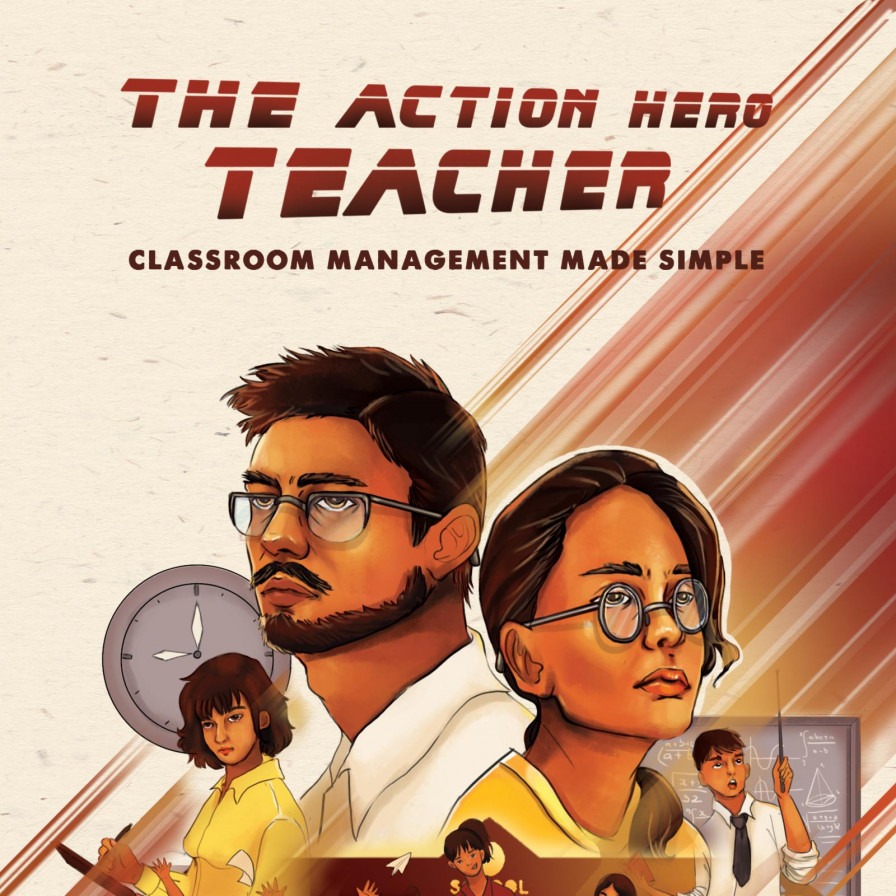Blog - "The World's Changed - Has Your Teaching?" with Karl C. Pupé

We had an exciting and interactive Empower Hour session, facilitated by Karl C. Pupé, author of The Action Hero Teacher.
Karl has been in education for around a decade, working with vulnerable children with a range of additional needs in inner city London.
For anyone who missed it, this blog summaries what was discussed. We learned about:
- How your age affects how you interact with the world.
- The Strauss-Howes Generational model. This framework explained the key characteristics of each generation.
- The generational profile of “Generation Z".
Our brain’s neural network
Karl asked attendees to tell him their favourite album, and how old they were when they first heard it. Every single delegate chose an album from their youth. According to William James, one of the pioneers of modern psychology.
“In most of us, by the age of thirty, the character has set like plaster, and will never soften again.”
We are all shaped by the generations that we emerge from. Our beliefs, language, ideas and world views are all molded in these times. Neuroscience has backed up his claim. Heard the phrase ‘stuck in your ways’? Well, that’s because after the age of 25, our neural networks tend to ‘set’.
Although we are all capable of changing our habits, familiar things bring us a sense of nostalgia and comfort. Listening to the same genre of music or watching the same films, gives us a warm feeling. I personally, associate particular music to a certain time in my life, and it can bring great comfort. Particularly when we encounter challenging situations, reverting to a familiarity is sometimes needed.
Research has found that the ages between 12 and 25 are your ‘peak musical experiences’. The music, culture and fashion you consume will be ‘locked in’ and will be what you follow for the rest of your life.
From the time you are born until you reach your mid-twenties, your brain’s neural network is incredible elastic and fluid. This makes it easier to:
- Be creative.
- Learn and absorb new information quickly.
- Adopt new ideas and worldviews.
Gaining Generational Awareness
Karl talked to us about the Strauss-Howe Generational Theory. This describes a recurring cycle of age cohorts called ‘generations’ that show specific patterns of behaviour. Each new generation that emerges has its own political, economic and cultural ideas that go against the generation before.
This has implications for anyone who teaches people from a different generation to them. What does it mean for people who teach music classes to young audiences today?
Today’s generation of young people has been impacted in so many ways. They have had to adapt to multiple changes. Delivering an impactful session has to be carefully considered. We are living in a digital generation that has access to unfiltered information in a time of political, environmental and social upheaval. Our approach needs to allow room for these topics to be discussed, to maintain engagement and consider the wellbeing of young people.
Generation Z: What is it?
Generation Z are ‘Digital Natives’. This means they are the first human generation to never know what life was like before the Internet – they are truly unique!
With the Internet democratising ownership, fame and leadership, young people no longer feel that they need to go through the cultural and societal ‘gatekeepers’ to get their projects and ideas out there. They have a powerful ‘Do-It-Yourself’ attitude.
Creativity, side-hustles and entrepreneurship is the new Rock and Roll!
Digital influence and the affects
Karl said that your students are ambitious and may challenge your authority because they may see the old way of doing things as ‘obsolete.’ He suggests:
Move away from being a ‘teacher’ and instead be a ‘coach.
Approach young people by ‘bridging’, connecting what they want to do with what you teach.
This Empower Hour was a great session which highlighted working in a student-centred and inclusive way whilst considering inter-generational differences.
Further Resources
Check out the HEARD model to help you make your music teaching and learning more inclusive. These videos by More Music and Brighter Sound are thought-provoking and can be used in training or to stimulate discussion. You could also look at Youth Music’s quality framework, Do, Review, Improve to help you plan for and evaluate quality in your work.
Video of session: https://youtu.be/aYs-4fRo5E8
